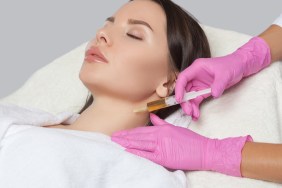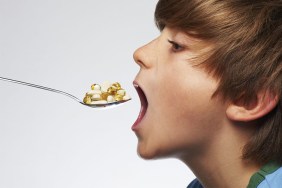There is simply nothing worse than watching helplessly as your child experiences pain. And yet, part of childhood includes the standard the standard maladies of scraped knees, insect stings and bruised elbows. But when headaches begin to show up with regularity, you might start to worry. When adults get headaches, they can usually pinpoint the origin of their pain and find relief with simple lifestyle changes or some over-the-counter medication. We soldier on and chalk it up it to the stressors of adulthood. It can be a different story when kids get headaches, though. Young children may not be able to communicate the headache pain they’re experiencing and this often makes it hard to help them.
Here are several common types of headaches, their causes, and how to treat them.
Migraine
Kids as young as infants can experience a migraine. Symptoms often include some or all of the following:
- Nausea
- Vomiting
- Abdominal pain
- Sensitivity to light (can be extreme)
- Pain that gets worse with exertion
- Pain that feels like pulsing, throbbing, or pounding
Treatment for migraine is typically rest, removing stressors such as light and noise, and administering OTC pain relievers such as acetaminophen or ibuprofen. Talk to your doctor before giving any drugs, especially if your child has conditions in which OTC medicine may interfere.
Tension Headache
Tension headaches are just the domain of stressed-out parents; even kids can get them. Symptoms often include some or all of the following:
- Tightness of the muscles on the back of the head and neck
- Mild to moderate pain that does not pulse
- Pain that does not worsen with physical exertion
- Absence of nausea and vomiting
Young kids who experience tension headaches but who may not be able to articulate what they are feeling may become inactive and quiet or cry. To treat a tension headache, soothe your child, and provide a quiet and comfortable setting. Make sure they drink plenty of fluids and rest. You can also try OTC pain relievers such as acetaminophen or ibuprofen. Talk to your doctor before giving your child any medications.
Cluster Headache
Cluster headaches, unlike migraine and tension headaches, are uncommon in kids under the age of 10. If you think your child has a cluster headache, then call your doctor for evaluation. These headaches occur with regular frequency in short periods, such as five or more episodes in a week.
- Typically, these headaches appear daily for about a week before they disappear. Symptoms can include:
- Sharp, stabbing pain on one side of the head
- Watery eyes, congestions, runny nose
- Irritability
- Typically lasts for under 3 hours during an episode
Treatment for a cluster headache can include rest, hydration, and OTC pain relievers.
If any headache appears daily for 15 days or more, then a doctor may diagnose it as a chronic daily headache and then help develop a treatment plan.
When to Call the Doctor
Headaches are a terrible experience for anyone, but especially for little kids who may not have a way to verbalize just how yucky they feel. If any of the following symptoms occur, then call a doctor right away.
- Headache following an injury
- Changes in personality
- Worsening in pain or frequency of headaches
- Headaches that wake your child from sleep
- Fever or neck stiffness
More About Children’s Health:
- RSV: What Is Respiratory Syncytial Virus?
- Baby Cough: Why Is My Infant Coughing?
- Is Croup Contagiou? Plus, How to Get Rid of This Nasty Cough








